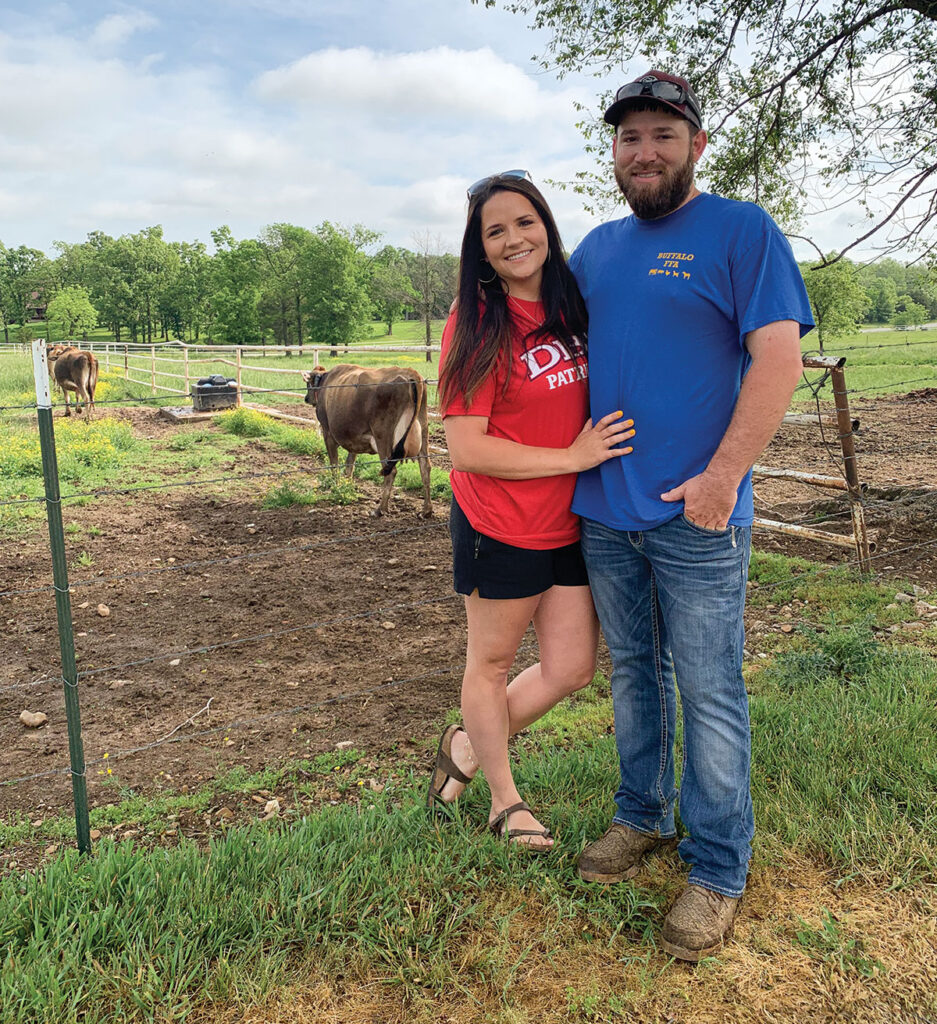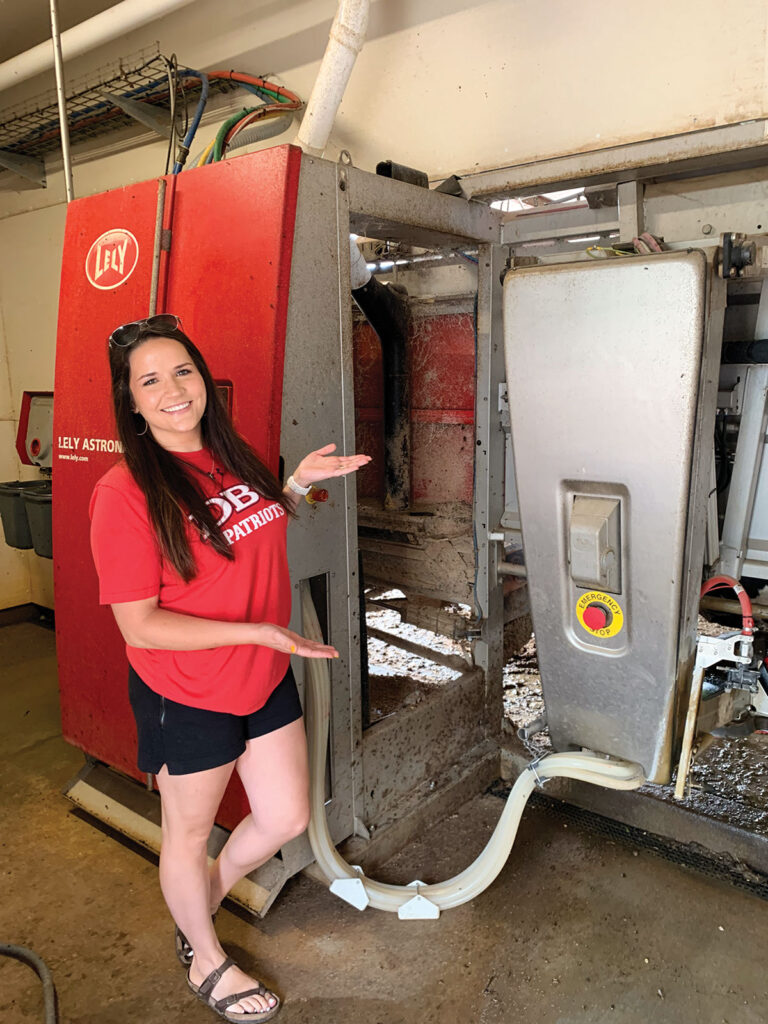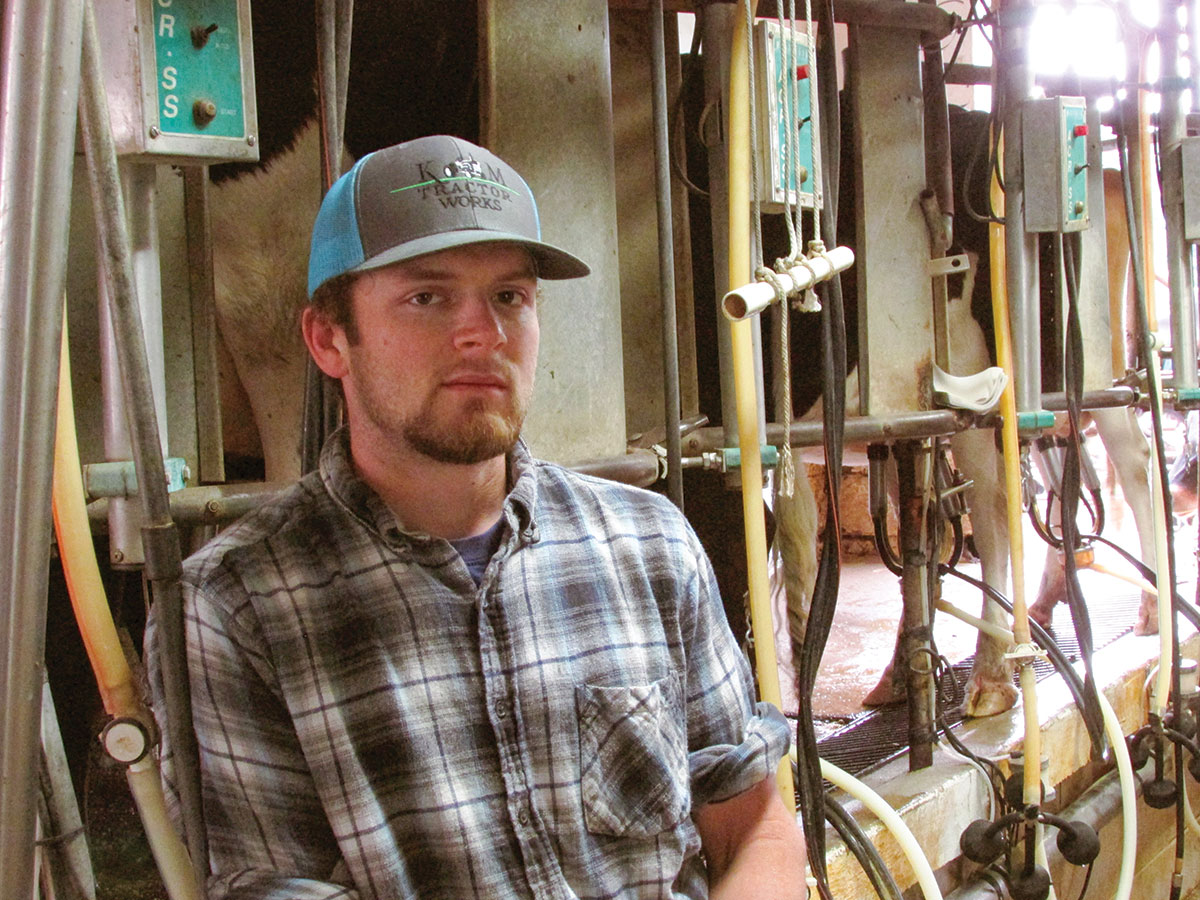
Gettle Dairy Farm utilizes a robotic milking system for it’s 120-cow herd
PLEASANT HOPE, MO. – On the Gettle Dairy Farm in Pleasant Hope, Mo., robotic milkers save Ryan and Debbie Gettle precious time with their four children.
Since 2016, the Gettles have ran a cattle and dairy operation on 1,100 acres in Polk County with Ryan’s parents, Chuck and Diane Gettle. Ryan is a fourth-generation farmer; his family has been in the farming business for decades. Even Ryan’s brother Brandon Gettle helped in the expansion of the farm, jointly acquiring another 500 acres of the total land owned by members of the Gettle family.
Ryan didn’t start out as a dairy farmer. Instead, he had a “regular” job in town, but he quickly learned that kind of lifestyle wasn’t for him.
“I didn’t like it,” he said. “My parents had a dairy that they had quit working back in 2009.”
And that’s when Ryan and his brother purchased the extra acreage and decided to revive the milking operation.
On the farm, they have a mix of Jersey and Holsteins for dairy and Angus for beef, with 200 momma cows and 120 dairy cows. Milk is sold to Dairy Farmers of America.
The reason for their beef and dairy breed choices are simple: efficiency, Ryan said. And that ties in with their goals for the operation.
“We want to become more efficient in feeding,” Ryan said, adding that doing so will result in a better milk product.
As for the dairy side of the operation, this is where the robotic milkers come into play. The robotic milkers are a technology that provides the Gettles a previously unheard-of-freedom for dairy farmers. Not having their life revolve around that set-in-stone milking time each day is a huge gift of time.
The technology allows them to separate from that twice daily appointment, which is an essential function with four young children. It was a huge investment, they admitted, but it’s something that aids not only in producing top-notch milk, but provides more freedom. With the robotic milker, each cow has a neck collar.

“It’s basically a FitBit for a cow,” Ryan said.
The transponder contains the cow’s personal data. Each cow that has a neck collar can enter the robotic milking machine when it’s ready to be milked. It’s identified by that collar. Then, the robot is triggered to clean the cow’s teats, then proceed in the milking process. The data is collected and reviewed by the Gettles so they can track milk production and alter feed, if needed, for efficiency. Their Jersey herd’s rolling average is about 55 pounds per day, Ryan said.
The dairy cows’ diets consist of alfalfa, corn, silage, soybean meal, brewer’s grain, and a custom mineral pack brought in from Kansas. Beef cattle are grass fed with some partial rotational grazing, and supplemented with mineral packs acquired near Marshfield, Missouri. All cows are vaccinated, wormed, and a hoof trimmer comes out every six months for the dairy cows. These are just a few of the many details that go into the business of cattle and dairy.
Ryan said their business goals are to “just get better at what we have.”
Both Ryan and Debbie believe homing in on the quality aspects rather than expansion is their focus. As for their personal life, having their kids grow up on the farm is the other side of things. “I like that they [the children] have space and freedom along with responsibility,” Debbie said. “[Farming] teaches them a life skill. They understand where things come from.”
“And it keeps them off their tablets,” Ryan added.
But son Mason, 8, does a pretty good job of running reports for the dairy operation on the computer.
“He can pretty much run it,” Ryan admitted.
Both Ryan and Debbie agree having their children – Mason, Maddison, Mylee and Marshall – grow up on the farm is an essential part of what motivates them to keep the operation up and running and functioning smoothly. And the robotic milkers have aided in making a large-scale dairy farm a possibility while raising a big family.







